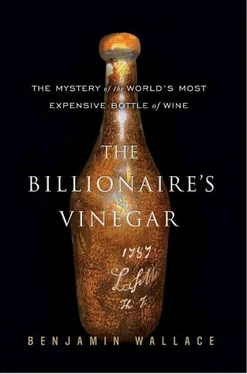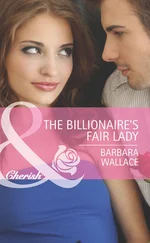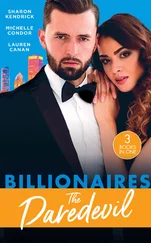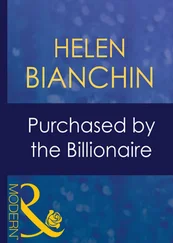“A hundred and five.”
Michael Broadbent was speaking.
“One hundred and five thousand pounds, in the middle.”
Shanken saw that Kip Forbes had raised his finger.
Kip Forbes had raised his finger!
Broadbent looked searchingly at Shanken.
“At one hundred and five thousand pounds,” Broadbent repeated. “Going at one hundred and five. Any more?”
No frigging way, Shanken thought. He kept his hand down.
“One hundred and five thousand,” Broadbent said once more, and hammered the lot down.
The room roared with applause.
The whole thing had lasted one minute and thirty-nine seconds.
Kip Forbes was handed the bottle, which he laid gingerly in his green Forbes Capitalist Toolbag. Then he and Yablon, somewhat stunned, left the room while bidding on other lots continued. They had spent the equivalent of $156,000. It wasn’t as if the Forbeses hadn’t bought things at auction for much greater amounts of money, but for a bottle of wine this was unheard of. Kip would allow that he had suffered from “a controlled contagion.” Only after exiting did he and Yablon discover whom they’d been bidding against.
“Why didn’t you tell me you wanted to bid?” Yablon asked Shanken. “We could have talked.”
Some people had followed them out of the room, curious to learn just who these men were, and a crowd gathered. Journalists’ questions focused on the importance of this bottle, which had been earmarked for the author of the Declaration of Independence. Suddenly, Kip was in the position of having to explain and find meaning in a purchase that had begun as a quotidian chore. “It’s more than a bottle of wine,” he answered, when a reporter suggested his bid had been exorbitant. “It’s a piece of history.” He said the Forbes family had no intention of opening the bottle. He planned to celebrate by drinking a rather younger Lafite.
With the news about to go out on the wires, Kip figured he had better call his father. “Well, Pop,” he told Malcolm, upon reaching him in New Jersey, “I did what you told me.” When Kip said what he’d spent, his father’s reaction was of the Mason-Dixon variety. Malcolm dropped the phone. When he recovered himself, he was furious. Kip held the receiver away from his ear, but Malcolm was still audible. He demanded to speak to Yablon: The guy who was supposed to take care of the money had allowed this insanity? Gladly, Kip handed the phone to Dr. No, who dutifully took his turn in the telephonic woodshed.
The idea was to fly the bottle straight to New York in time for the gallery opening that evening, but now Christie’s was confronted with something it had never faced before—a bottle of wine that had sold for so much it would require an export license. A museum was also needed to certify that the bottle wasn’t a national treasure, and discussion ensued as to which museum could most quickly provide this service. Broadbent’s right-hand man set about making the arrangements, while Broadbent called Rodenstock to tell him the news. Like Broadbent and Forbes, the German was taken aback by the amount. While waiting for the paperwork to come through, Kip chatted with Yablon and Broadbent. Ever the salesman, Broadbent wondered if they mightn’t be interested in other bottles from the cache.
By the time the Victoria and Albert Museum provided the certification, it was nighttime, and there was no way Kip and Yablon were going to make it to the party in New York in time. Export license in hand, they were driven to the Capitalist Tool, idling on the tarmac at Heathrow. With an eight-hour flight ahead, they put the bottle to bed in the plane’s stateroom—swathed in velvet, nestled inside the carry bag, surrounded by pillows, and bound loosely to the mattress with sheets. Then they settled in for the flight, talking about how angry Malcolm was.
At Newark Airport, the head of Forbes security helped them through customs. They braced for Malcolm, but by the time they saw him, the following day, his attitude had shifted. While worrying that he would look like a horse’s ass—a fear that had seldom vexed his free-spending life—he had gone on the TV program Adam Smith’s Money World, ostensibly to talk about the economy. Inevitably asked about the purchase that was making news around the world, Forbes had grumbled, “The Forbes family would be far better off if Mr. Jefferson had drunk the damn thing.”
Now he was thankful. Reporters were calling in droves, and it was dawning on Malcolm that the Forbeses had inadvertently staged, as Yablon would later put it, a “masterstroke… the publicity coup of the century.” Marvin Shanken, in his London hotel room, received a call telling him that news reports of the Forbeses’ record purchase mentioned that the underbidder was the publisher of Wine Spectator . The PR was nice, but mainly Shanken was relieved to have escaped without the bottle. Kip Forbes had a hard time believing this. “I think at the end [Shanken] regretted it,” Forbes asserted later, “because it was a slow news moment, and it did get huge amounts of publicity.”
At the Forbes Galleries, curator Margaret Kelly took over. She had learned of the price paid for the acquisition from the radio. The Jefferson table already stood against an angled wood-paneled wall in the narrow Carrère gallery on the ground floor. Recessed in the wall above the table was a diorama containing a miniature replica of Jefferson’s bedroom and study at Monticello. On the table, Kelly had draped a tacky wood crate with salmon-colored velvet, and she now positioned the bottle at an angle, nestled in the fabric, with the engraving showing. Next to it, under glass, were the three Jefferson letters.
Upstairs, in the company offices, there were a lot of raised eyebrows. Malcolm was known to do crazy things, but this set a new bar. Kip’s siblings, however, understood. Their father had wanted something. There really hadn’t been any choice.
Years later, Len Yablon, who had a wine cellar at home but was partial to a good cocktail, would recall that at the time he thought it was “meshuggah”— this was a bottle of wine, not a Rolls Royce! —“but it ended up genius.” Still, he acknowledged, a public company could never have gotten away with such an expenditure. That was the joy of working at Forbes—business and fun were never far apart, whether it was owning a motorcycle distributorship or a bottle of wine that had belonged to Thomas Jefferson. Yablon never knew what was next: A party in Morocco? A balloon trip across the ocean? But of his forty-one years at the company, the purchase of the bottle still ranked, two decades later, as his most unusual experience working for a very unusual man. It reminded him of a great naval battle that lasts only an hour but goes down in history.
ON THE NIGHT of the auction, in the northern German city of Hamburg, a telephone rang in a house east of Lake Alster. It was answered by Hanns Janssen, a Monte Carlo Rally driver turned wine writer who had been present when Michael Broadbent persuaded Hardy Rodenstock to let him auction the bottle. Rodenstock was calling now. What, he wanted to know, did Janssen think the bottle had sold for?
JANSSEN: Twenty thousand marks.
RODENSTOCK: No.
JANSSEN: Twenty thousand francs.
RODENSTOCK: Don’t talk in francs or marks. Guess in dollars.
JANSSEN: Okay, ten thousand.
RODENSTOCK: No, more.
JANSSEN: Fifty thousand.
RODENSTOCK: More.
JANSSEN: You’re crazy.
RODENSTOCK: More.
JANSSEN: One hundred thousand.
RODENSTOCK: More.
JANSSEN: One hundred fifty thousand.
RODENSTOCK: One hundred fifty-six thousand.
JANSSEN: Now, what do you think of that bottle that we drank? Was it worth one hundred fifty-six thousand?
Читать дальше












